AI Entrepreneurship Boom: Post-00s Entrepreneurs Are Becoming the Main Force in the AI Field
-
Post-00s entrepreneurs are becoming the main force in the AI field, exploring AI-generated images, digital humans, virtual voices... They unleash their imagination in every possible direction.
We spoke with three Post-00s entrepreneurs in the AI industry and found they share very similar traits: growing up immersed in the internet, not fitting the conventional definition of 'good students,' and ultimately finding their passion through their love for experimentation.
What kind of education did they receive? How did they embark on the path of entrepreneurship? Where has AI led them?
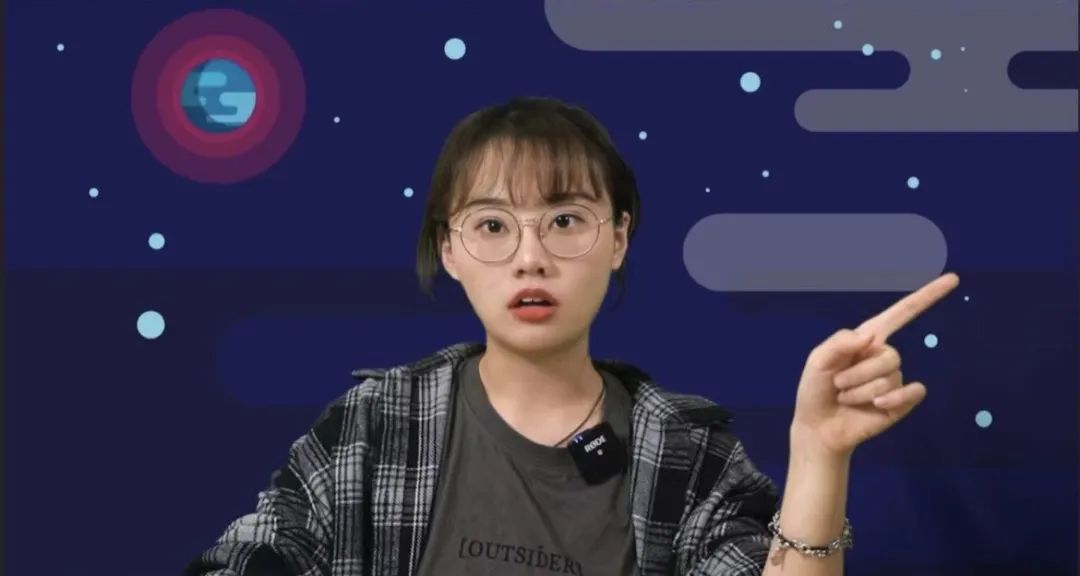
Qinggan 00年 Base北京、上海
上海科技大学 计算机科学专业
Entrepreneurial Direction: AIGC (AI-Generated Images)
Choosing the path of entrepreneurship feels very natural for me, to the point where it would seem strange if I didn't pursue it.
Since middle school, I've often told my friends about my big dreams—what I want to achieve and where we might meet in the future, inviting them to join me. I love using this kind of phrasing when talking to people.
I believe what our team is currently working on is something imaginative, dedicated to expanding the boundaries of human creativity. We aim to create the most aesthetically pleasing AI-generated images. We started this journey back in late 2021, before products and models like Midjourney and Stable Diffusion even existed.
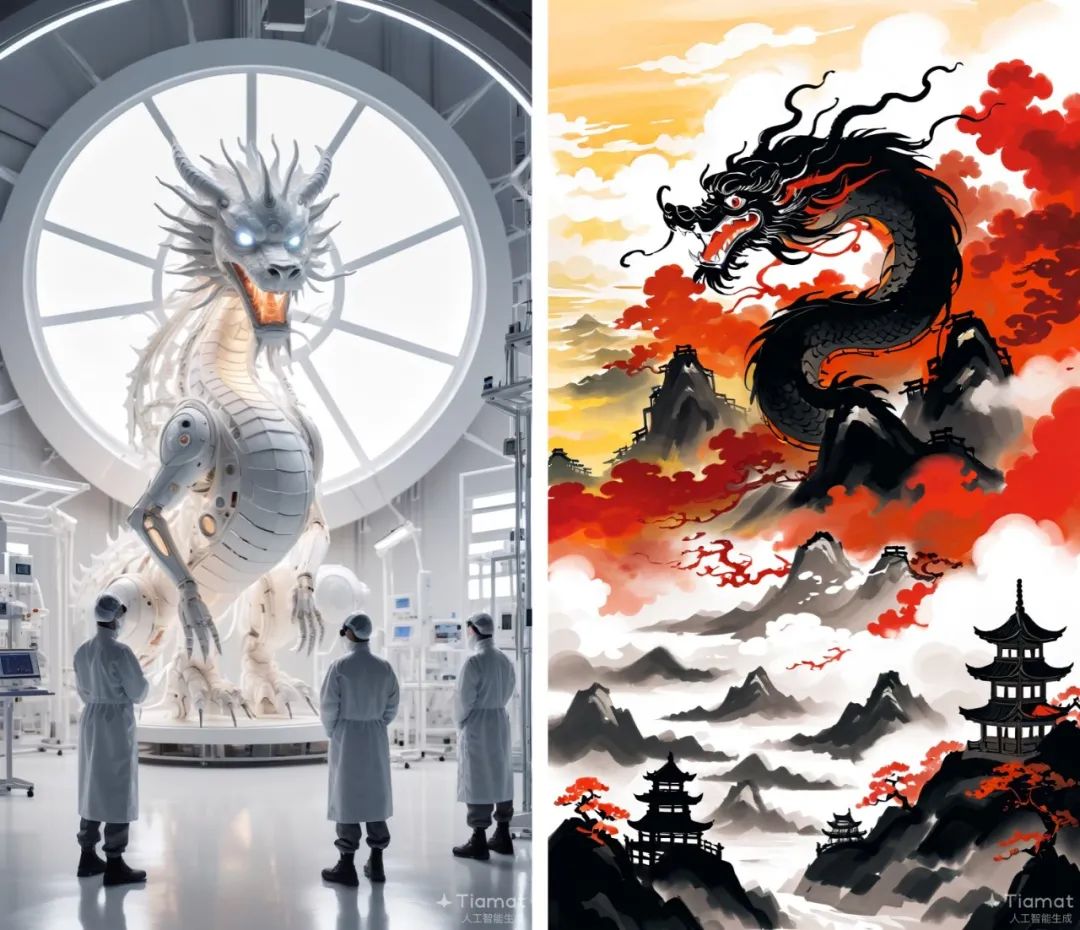
▲ AI-generated image by Tiamat developed by Qinggan Team
You ask me how I embarked on the path of AI entrepreneurship right after college. I answer with Steve Jobs' words: "You can't connect the dots looking forward; you can only connect them looking backward."
Learning computers or making games was one of my childhood dreams.
I'm from Xi'an. When I was little, my parents weren't often at home, but they provided me with relatively good equipment like computers. As a result, I've loved playing games since childhood - from console games to online games. I probably started with Warcraft-style games, then moved on to League of Legends and Overwatch.
Although it might sound like I'm a gaming addict, my passion drives me to constantly explore new ways to play. Take Metroidvania games, for example—titles like Hollow Knight and Dead Cells offer a wealth of gameplay possibilities, which I absolutely adore. Each game carries unique creative expressions and meanings that the developers intend to convey.
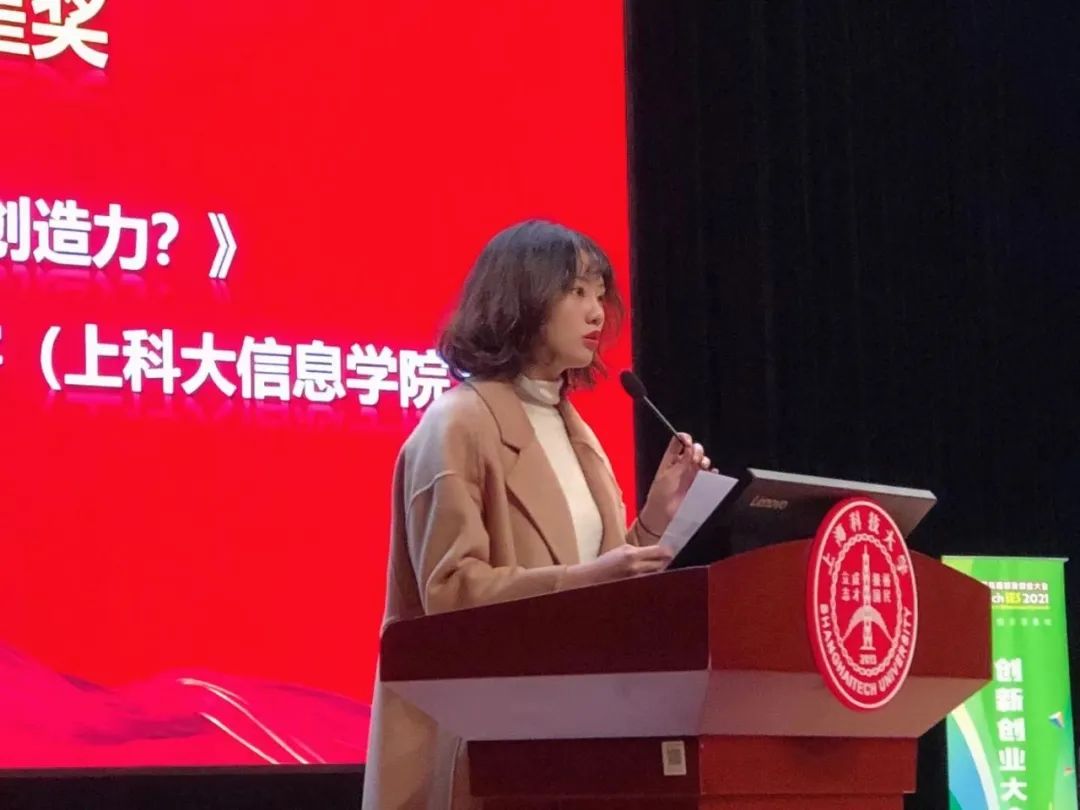
▲Qinggan speaking at the Innovation and Entrepreneurship Competition
Since childhood, I've had an obsession with expressing myself and influencing others. Whenever I encountered games that weren't fun enough, I wanted to create games that met my psychological expectations. This led me to research what skills are needed to make games.
Games essentially consist of three elements: art, design, and programming. Learning art can lead to concept design, while studying computer science can lead to programming. I even took on screenwriting-related work in the past to better understand game design.
I've been studying art since kindergarten, initially just as a hobby. Later in high school, I participated in joint entrance exams for art schools. When I visited the training base for these exams, I realized that pursuing purely artistic work might not fully satisfy me - I wanted to do more than just painting.
In addition to studying fine arts, I also participated in math competitions and eventually found myself more interested in mathematics, which led me to choose cultural studies.
I was admitted to the School of Information Science and Technology at ShanghaiTech University through early admission. Our university is quite unique, differing significantly from traditional universities, with an annual intake of only about 400 students.
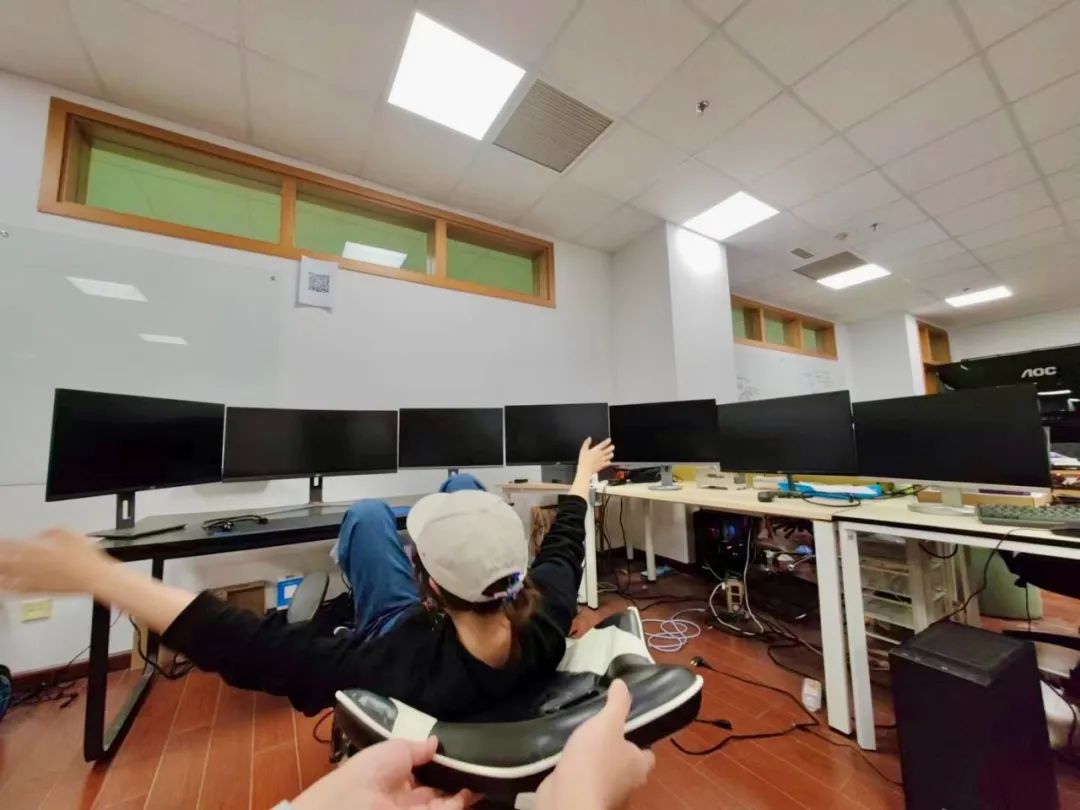
▲Qinggan's school-approved studio
The studio covers an area of approximately 300 square meters.In our sophomore year, we could apply for space to set up our own studios. Whenever you need help with entrepreneurship, you can knock on a professor's door anytime—they'll even help you revise your Business Proposal (BP). While majoring in Computer Science, I also minored in Entrepreneurship and Management. In fact, we've been learning how to develop a product since freshman year.
My personality doesn't align with the traditional notion of a 'good student.' I wouldn't adapt well to conventional academic institutions that follow rigid structures, as I prefer more innovative educational environments.
I've interned at major corporations and worked in laboratories, but I don't enjoy being micromanaged. I much prefer working independently and pursuing my own projects.
In reality, everyone has the desire to express themselves and abundant imagination. The only difference is that some may lack systematic professional training. AI-generated image technology exists to help people realize their creative ideas.

▲An image generated by artificial intelligence
The AI industry is fundamentally about packaging computing power and selling it, much like coffee beans. We, the models, package them into different types of coffee—whether it's a latte or an Americano. If you package it better or make the coffee taste better, users are willing to pay much more for your product. Essentially, we profit from the difference between the coffee beans and the final coffee product.
Initially, most users of Tiamat were likely drawn by novelty. Now, many of our users are professionals in self-media, graphic design, UI design, art, and related fields. They use the generated images in their actual work scenarios.
Our team is young and highly driven, consisting of about 20 members. We have open discussions almost daily about new directions or emerging AI content. The R&D members are particularly sensitive to new AI technologies, often competing to be the first to share the latest updates with me.
When I first started this venture, I didn't overthink it - I simply wanted to get things done. But running a company is very different from working on a single project. While a project only requires focus on the task itself, managing a company involves dealing with organizational structure, team dynamics, and numerous trivial matters, inevitably leading to many learning experiences along the way.
But entrepreneurship is actually very much like playing a game to me. Although inherently difficult, just like in a game, you always encounter certain levels where you need to strategically deploy resources, like in card games, and continuously iterate.
As long as you see the world as a massive game, you'll find a way to enjoy it no matter what.

▲April during her early entrepreneurial days at university
April 00s | Based in Beijing, Hangzhou
Peking University Computer Science Major
Entrepreneurial direction: Metaverse virtual humans
Many people believe that you should first gain work experience before starting a business. However, I think if I had worked for two years before venturing out, all the opportunities in the Metaverse and AI industry would have been taken by others. Looking back now, this seems to be exactly what happened.
During my university days, I initially worked on a community-based app where everyone's profile was flat with just text and images. But we thought, what if we could create a three-dimensional digital avatar? Its interactivity and expressiveness would be significantly enhanced.
My research focus in university was on new media visuals and graphics, and upon graduation, we began working in the field of virtual humans and 3D technology.
In simple terms, we use cutting-edge technologies like AI and 3D to help people turn their creative ideas into tangible 3D models. These generated models can then be 3D printed and turned into IP cultural and creative derivative products.

▲Left: April and Xu Yangyuzhuo taking a photo together. Right: Xu Yangyuzhuo's Q-version figurine
For example, we recently collaborated with SNH48's Xu Yangyuzhuo to create her Q-version figurines, which were given to fans during their performance reception. I was also present at the scene, and many fans showed deep emotional attachment to these items. They would tell me how much they wanted certain designs.
Nowadays, many animation, film, and cultural industries require transforming their IP characters into 3D digital models. These digital characters are then used to develop AR (Augmented Reality) interactive scenarios or create physical derivative products.
In fact, the decision to start a business is quite similar to the mindset I had when participating in competitions as a child.
I attended high school in Changsha and started participating in informatics competitions from my first year. I find algorithm programming to be a creative problem-solving process where the same problem can have numerous different solutions, unlike standardized exams that usually have fixed correct answers. The creativity involved and the intellectual challenge are what truly attract me to this field.
If I had to sit in a classroom every day, I might have kept getting distracted, but when it comes to competition preparation, I can study until midnight every day.

▲April at Peking University's Weiming Lake - She began her entrepreneurial journey upon graduation
My parents were quite tolerant towards me. After choosing to participate in competitions, I rarely attended regular college entrance exam preparation classes. Normally, this would be unacceptable, but at that time my father went to talk to the homeroom teacher. He believed I didn't need to attend those classes and was willing to take responsibility for the consequences.
I've never been particularly interested in conventional learning, nor was I ever the type of student who excelled academically from a young age. I've always been more drawn to painting, design, and internet content. Starting from middle school, I was active on platforms like Weibo and Baidu Tieba, serving as a forum moderator and KOL blogger. During that time, I was already involved in graphic design and content operations.
I've also had internship experiences at major tech companies like Alibaba, ByteDance, and Google. The difference between working at large corporations and entrepreneurship is quite significant. In big tech companies, you're typically responsible for a fixed technical or algorithmic module, operating within many rules and processes. But entrepreneurship is entirely about creating something new.
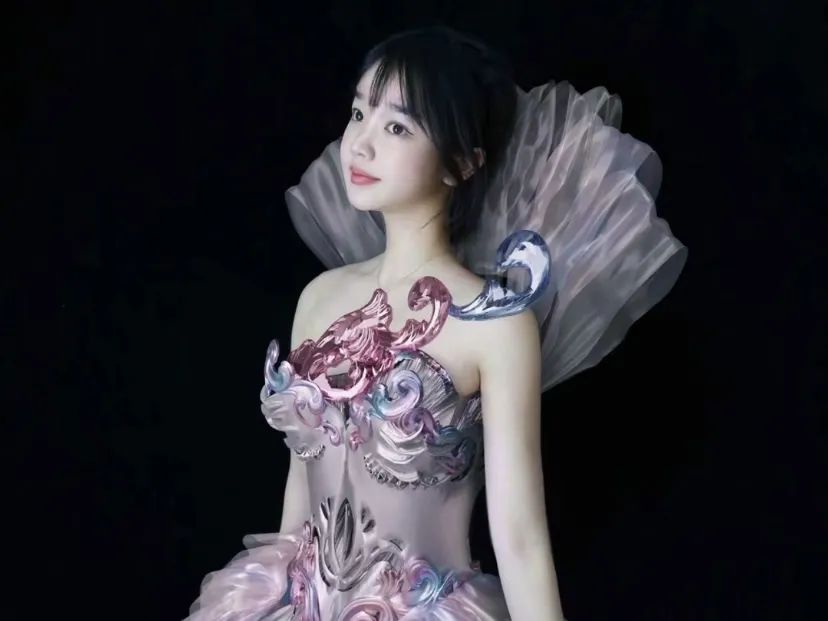
▲April's self-made metaverse virtual fashion
What attracts me to entrepreneurship is its end-to-end and full-chain nature. I have to face not only this technology but also operations, marketing, and more. I need to think about how to implement the technology.
Whether it's clothing or trendy toys, we can now transform a creative idea into a model and physical product in just one day using AI. Traditional products require a lengthy process of design, development, sampling, mold-making, and mass production, which consumes a lot of time and results in batch production. However, every piece we create is unique.
We want to empower everyone with the ability to create their own IP. Ordinary people can upload a photo of themselves to generate a Q-version avatar, while fan artists can turn their hand-drawn creations into 3D models or even physical objects. With a relatively low cost, they can purchase a 3D-printed product they designed themselves.
With digital humans, there must also be digital clothing and accessories, just like real people need clothes. We've digitized clothing patterns and materials, allowing you to see AR effects combining virtual garments with your real self even without physical items.
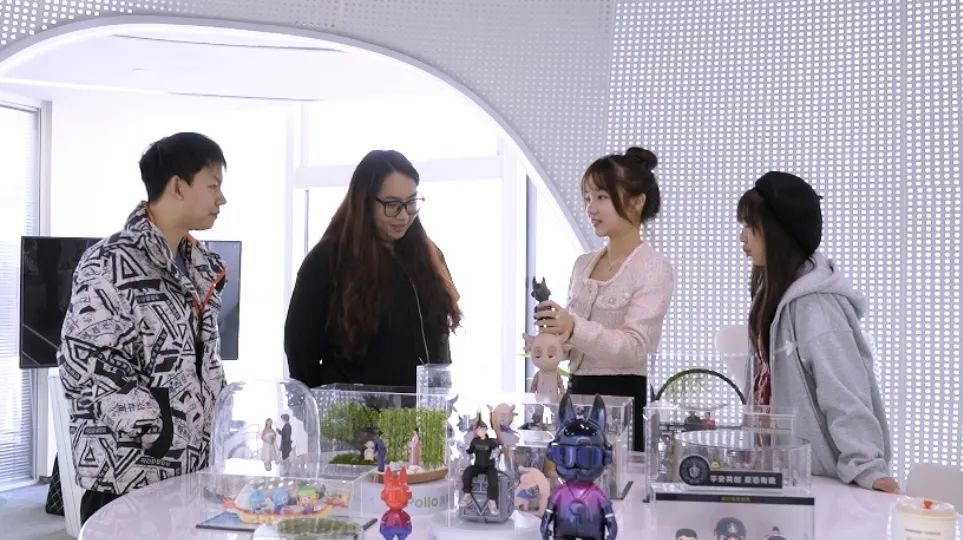
▲April team introducing their 3D models
Most people wouldn't guess at first glance that I'm involved in technology, which ironically makes others less guarded when discussing collaborations with me. Many senior colleagues older than me actually enjoy conversing with younger individuals, often feeling rejuvenated after our talks.
I'm inherently driven to create—my passion lies in merging technology with art to produce works that directly engage users. Even if I weren't pursuing this path, I'd likely be painting or crafting 3D model art. Initially, I simply focused on getting things started without overcomplicating the process with extensive path planning or risk analysis.
People often talk about 'involution,' but I believe the rewards gained from competing within an existing system are very limited. This cannot compare to the benefits of breaking new ground in a completely different field.
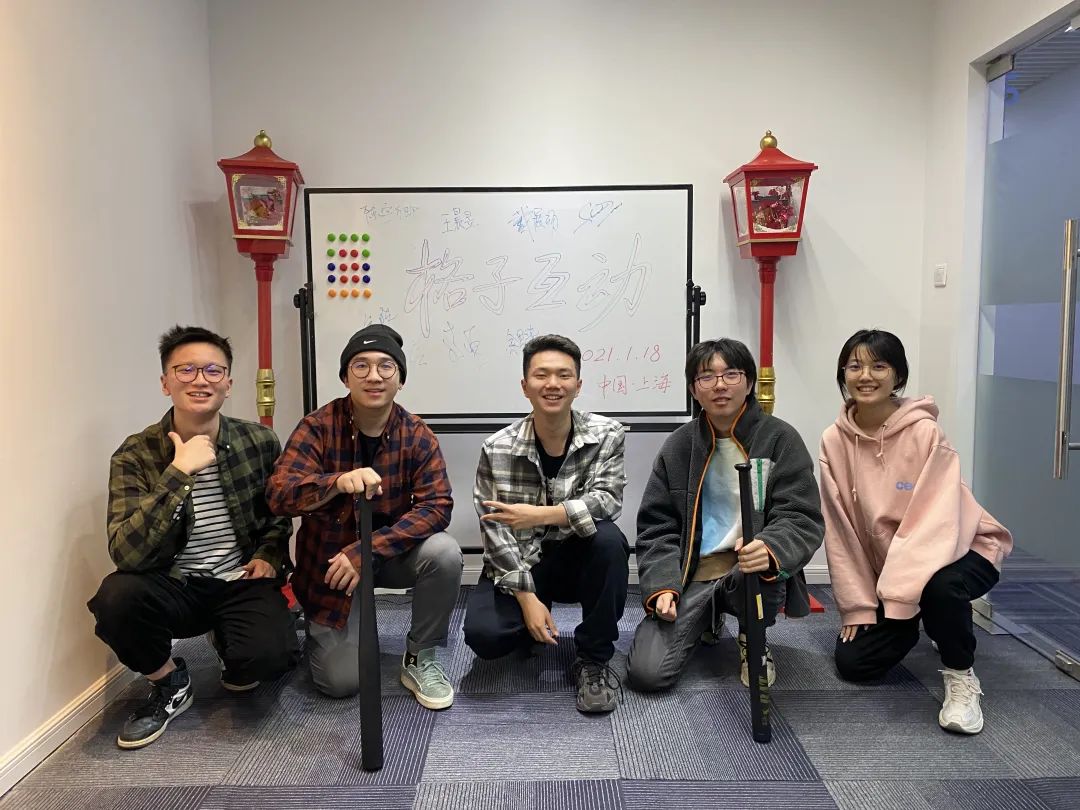
Ling Tiange 00年 Base Shanghai
Carnegie Mellon University
Major in Computer Science, Minor in Computational Finance
Entrepreneurial Venture: Virtual Voice Engine
During our conversation, I can instantly transform my voice into a gentle female tone, G.E.M.'s voice (邓紫棋), or even Paimon's voice from Genshin Impact.
This is what our team is currently working on. It's called a virtual voice engine – while you're speaking, others hear the transformed voice that still retains your original emotional delivery, tone, and speech cadence.
Entrepreneurship has always felt like something I was meant to do. Growing up surrounded by entrepreneurial elders, I developed an early desire to create my own products and build a company—I just wasn't sure when to start.
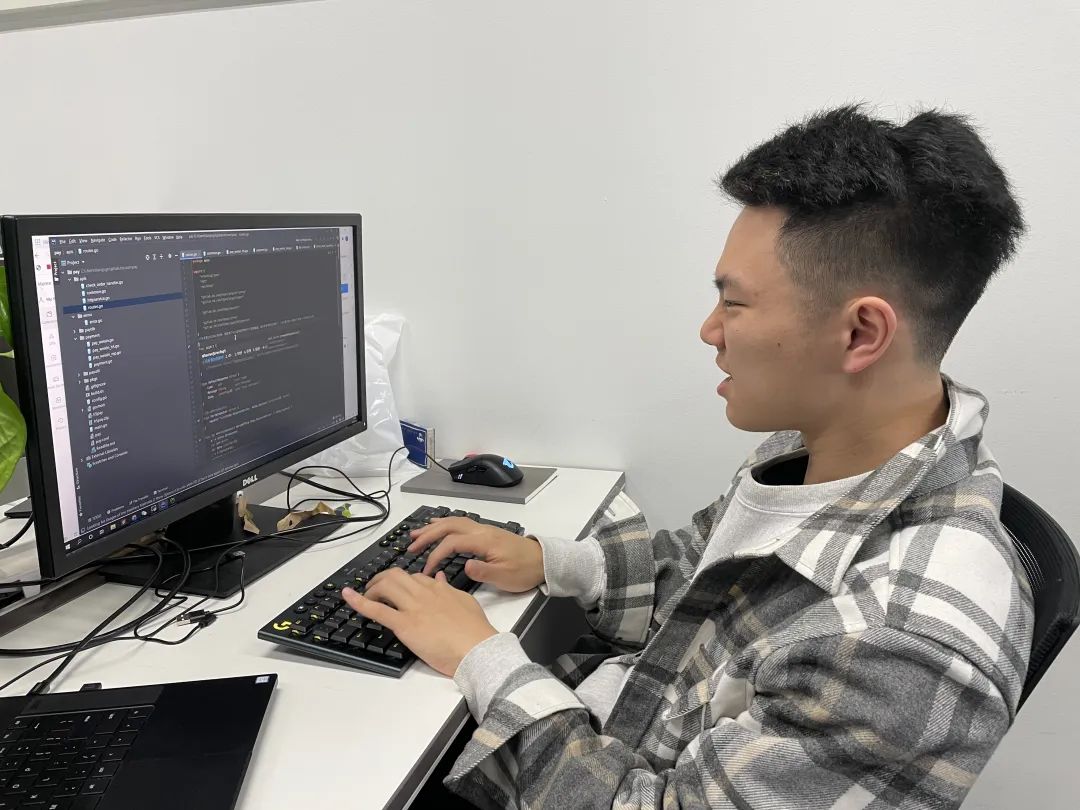
▲ Ling Tiange coding
From childhood to adulthood, I've always had the support of many family members, classmates, and friends.
When I was younger, I might have been the only student whose family fully supported playing video games. For example, during high school when classmates organized five-player teams or 5v5 tournaments, my home would host these events, and friends would all come over to play games.
Most parents would strongly oppose their children staying up late playing games, but my dad, who used to work in the gaming industry, not only supported me but also played with me. Once in middle school, we were playing a console game together, and halfway through, I wanted to go to sleep. He said, 'How can you do that? What about your teammates? You have to finish the game.'
I studied in Changsha until middle school, then moved to Shanghai's YK Pao School for high school due to my parents' work. Attending an international school, I had already decided to pursue studying abroad. Later, I got into a pretty good university, so it's clear that in terms of both family and education, I've been quite fortunate.
In my eyes, entrepreneurship is actually a great way to maximize and sustain your luck. I believe in the conservation of luck—if you squander your luck by being lazy, your life will only get worse from there on.
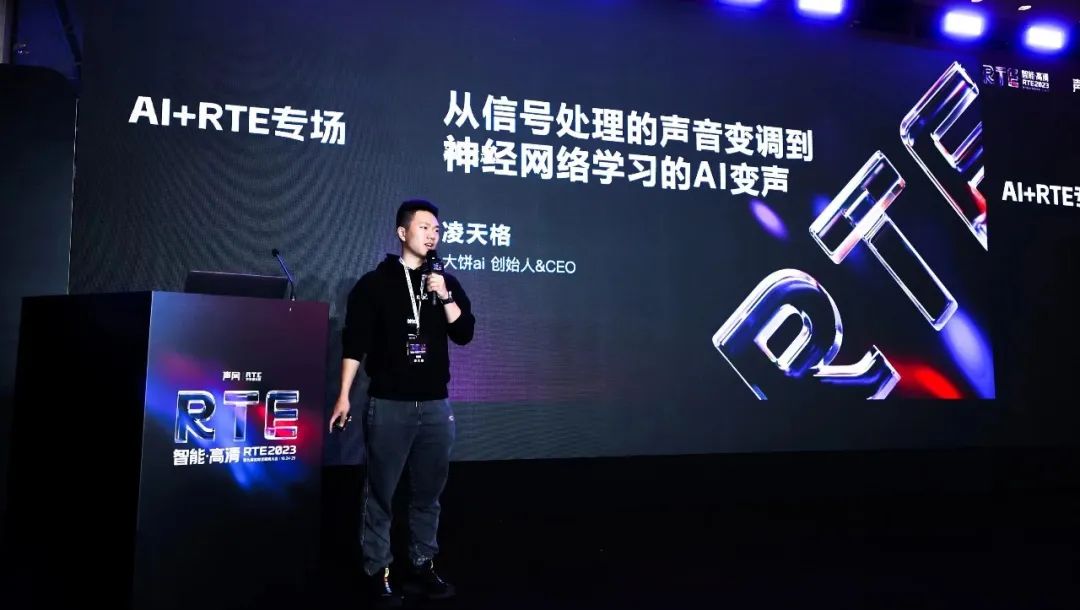
▲ Ling Tiange sharing at the developer conference
I first started my entrepreneurial journey during my sophomore year when I returned to China for online classes due to the pandemic. With less academic pressure, I found myself with some free time.
Actually, what I've always done is closely related to my hobbies. For example, we initially created an online murder mystery game because I personally enjoyed playing it. However, none of the existing online murder mystery games at the time could fully meet my needs. They all rewrote the scripts, simplifying the original offline versions, and lacked real-life DMs (Dungeon Masters, the game hosts), making them more like social matching games than authentic experiences.
However, those who enjoy script murder games crave strong emotional resonance. Often, the best experiences are those that can make players cry or even argue during offline sessions. Therefore, we initially hired professional voice actors to serve as online DMs, aiming to fully replicate the offline script murder experience online.
During this process, we accumulated a vast library of voice resources. Script murder is a game that heavily relies on voice communication. If players can speak in voices that match their roles and combine these voices with the game's scenarios, the immersion becomes even deeper. Thus, venturing into the AI voice field was, to some extent, a natural progression.
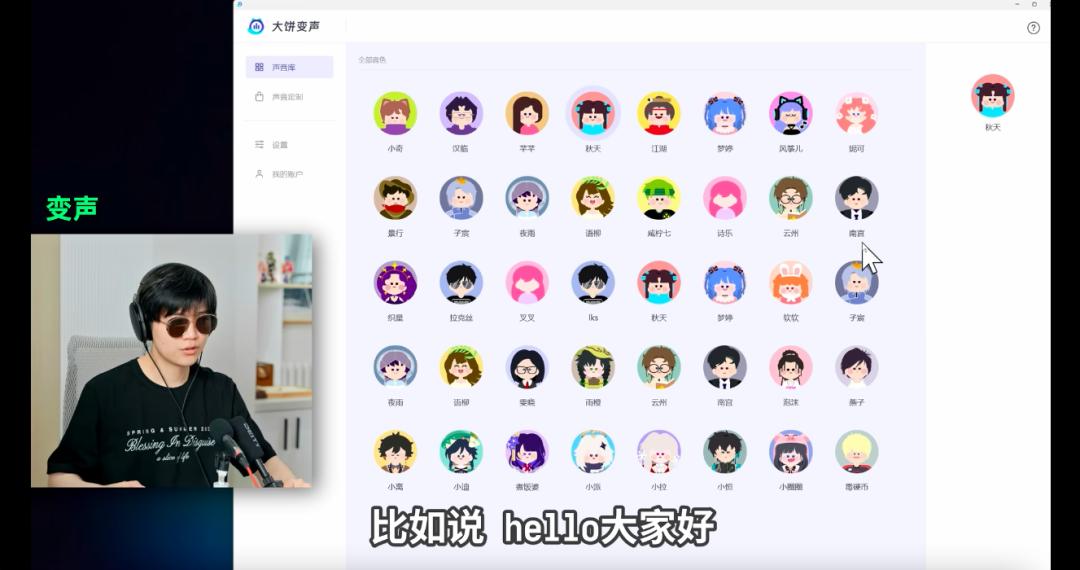
Just like the skins that characters can buy in games, while you speak, others hear the voice after it has been transformed by the 'voice skin'.
I discovered many firsthand needs while playing games. Many people might think using virtual voices or character voices isn't necessarily a widely recognized need, but when I was young and played games, I often faced situations where others wouldn't play with me because I sounded too childish due to my age. Back then, I already felt there should be a technology that could make my voice sound more mature.
Nowadays, similar prejudices still exist. For instance, people assume you're unskilled when they hear you're an elementary school student, or think female players are bad at games. Many players or streamers from second- or third-tier cities also lack confidence due to their accents. Our technology can transform their voices into standard Mandarin in real-time.
We aim to use AI to empower people, enhancing their abilities in work and play. Our vision is to achieve vocal freedom, enabling everyone to possess perfect and pleasant voices.
We are currently developing a real-time accent eliminator that can transform Chinese or Japanese English accents into authentic British or American accents. Most Japanese players are on the Asian servers, and they often encounter people from various countries while gaming. However, many times, others struggle to understand Japanese English, which is why we identified the need for accent elimination. This need extends beyond gaming to areas like international sales, customer service, and cross-border meetings.
Gaming has helped me make many friends. Many classmates went to different cities or even countries for university, but because we played games together, we remained close friends. Now, many of my co-founders and employees are friends I made through gaming.
Our team is based in Shanghai with 36 members, and the average age is around 25-26 years old (born in 1996 or 1997).
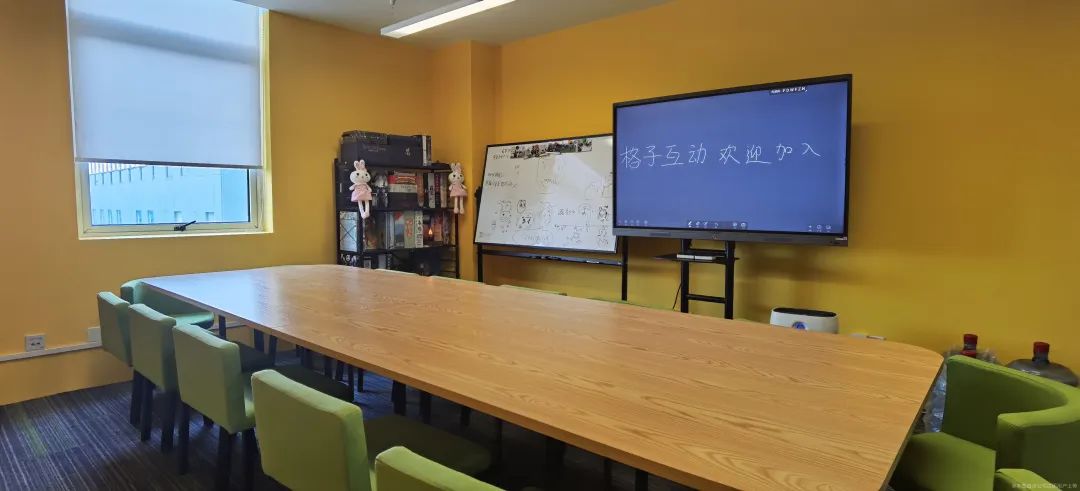
▲ The team's meeting room with walls painted yellow, representing more vibrant idea exchange
We usually describe ourselves as a very youthful technological innovation team. There's an interesting little detail about our company in Zhangjiang - during the decoration phase, different teams' wall colors were designed differently. The tech team's walls are green because green represents no bugs, while red would indicate errors. The operations team and meeting rooms feature brighter yellow tones, symbolizing more dynamic idea exchanges.
Our frontline employees are fully capable of making independent decisions. If a product manager believes a certain approach is better, they can proceed without needing to hold meetings with me. Management positions don't exist here because each person has clearly defined responsibilities—everyone knows exactly what they need to do each day, eliminating the need for special KPIs or OKRs to manage performance.
Many industry veterans might find satisfaction in building large, highly organized companies, but in my view, the ideal AI team is small yet powerful, with strong explosive potential.
Some might assume that post-00s teams are less intense or even 'reforming the workplace,' but the reality varies across teams. Our work schedule is roughly '10-9-5' (starting at 10 AM, finishing at 9 PM, working 5 days a week), which shows we're a highly diligent team.
Looking back to the early days of entrepreneurship, I simply wanted to complete a project well. But as we progressed, over these three years, several team members have started families, bought homes and cars. Gradually, I realized this isn't just a demo or a project anymore—it's at least a shared small vision for twenty or thirty people.
